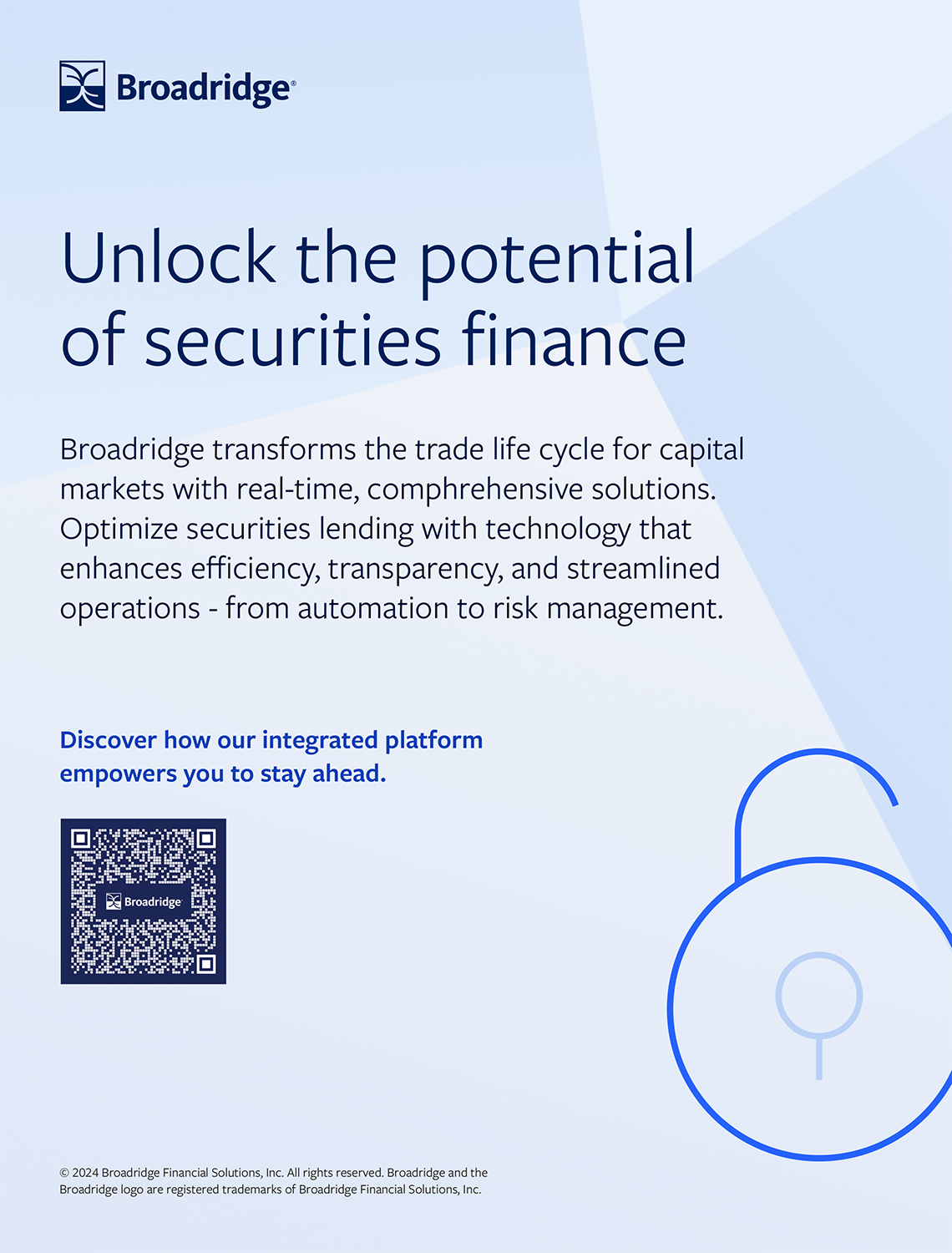RMA: Regulation forcing shift to structured data
09 October 2019 Miami
 Image: Shutterstock
Image: Shutterstock
Regulations are forcing a shift towards structured data in the securities lending industry and there are benefits to be had from this shift, according to speakers at the Risk Management Association’s 35th Annual Conference on Securities Lending.
In a panel discussion on the rise of financial technology and its impact on the industry, one speaker explained that regulations are forcing firms to live in a more digitised environment, which can be made harder by the persistence of unstructured data.
According to the speaker, unstructured data will make the move to distributed ledger technology and smart contracts much harder.
Another speaker noted that 90 percent of the world’s data has been generated in the last two years, highlighting the fact that the majority of this is unstructured data, which needs to be turned into structured data.
Once this has happened firms can implement big data strategies to understand and draw value from structured data.
A panellist remarked on the computer science phrase “garbage in, garbage out”, which refers to flawed or nonsense input data that produces nonsense output.
The panellist said this would be different in the future, as the industry’s ability to apply machine learning techniques to unstructured data will allow firms to “reap garbage and create value”, effectively turning unstructured data into a commodity.
In the future, hedge funds and other participants may even request unstructured data so that they can curate it themselves and create their own value.
However, the speaker said that the industry still had “legacy systems”, despite the fact that the “easiest thing to do in this century is replicate things digitally”.
While other industries, such as the entertainment industry, has been affected by this digitisation, the securities finance industry remains on these legacy systems, but the panellist warned that distributed ledger technology (DLT) would be the biggest disruptive technology in the industry.
According to the speaker, DLT will allow firms to share information across a peer-to-peer network while knowing with certainty that all participants will be seeing the same thing.
Another panellist warned that firms should be investing in this technology now because when it goes live it will be too late.
They said that firms would be at a “disadvantage” if they don’t put the work in now.
Panellists identified people as the biggest barrier to new technologies and said that firms shouldn’t be afraid to implement these new technologies and “implement processes”.
One panellist said: “Leveraging technology and using it in a smart governed way, that’s one of the facilitators, not necessarily a barrier to entry.”
Another panellist remarked that business models will change, so firms should not be scared of getting rid of departments or changing their business.
The panellist said that firms shouldn’t fear to re-engineer their old processes, as these new technologies grant them the tools to make the changes.
In a panel discussion on the rise of financial technology and its impact on the industry, one speaker explained that regulations are forcing firms to live in a more digitised environment, which can be made harder by the persistence of unstructured data.
According to the speaker, unstructured data will make the move to distributed ledger technology and smart contracts much harder.
Another speaker noted that 90 percent of the world’s data has been generated in the last two years, highlighting the fact that the majority of this is unstructured data, which needs to be turned into structured data.
Once this has happened firms can implement big data strategies to understand and draw value from structured data.
A panellist remarked on the computer science phrase “garbage in, garbage out”, which refers to flawed or nonsense input data that produces nonsense output.
The panellist said this would be different in the future, as the industry’s ability to apply machine learning techniques to unstructured data will allow firms to “reap garbage and create value”, effectively turning unstructured data into a commodity.
In the future, hedge funds and other participants may even request unstructured data so that they can curate it themselves and create their own value.
However, the speaker said that the industry still had “legacy systems”, despite the fact that the “easiest thing to do in this century is replicate things digitally”.
While other industries, such as the entertainment industry, has been affected by this digitisation, the securities finance industry remains on these legacy systems, but the panellist warned that distributed ledger technology (DLT) would be the biggest disruptive technology in the industry.
According to the speaker, DLT will allow firms to share information across a peer-to-peer network while knowing with certainty that all participants will be seeing the same thing.
Another panellist warned that firms should be investing in this technology now because when it goes live it will be too late.
They said that firms would be at a “disadvantage” if they don’t put the work in now.
Panellists identified people as the biggest barrier to new technologies and said that firms shouldn’t be afraid to implement these new technologies and “implement processes”.
One panellist said: “Leveraging technology and using it in a smart governed way, that’s one of the facilitators, not necessarily a barrier to entry.”
Another panellist remarked that business models will change, so firms should not be scared of getting rid of departments or changing their business.
The panellist said that firms shouldn’t fear to re-engineer their old processes, as these new technologies grant them the tools to make the changes.
NO FEE, NO RISK
100% ON RETURNS If you invest in only one securities finance news source this year, make sure it is your free subscription to Securities Finance Times
100% ON RETURNS If you invest in only one securities finance news source this year, make sure it is your free subscription to Securities Finance Times



